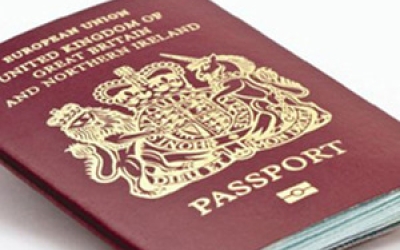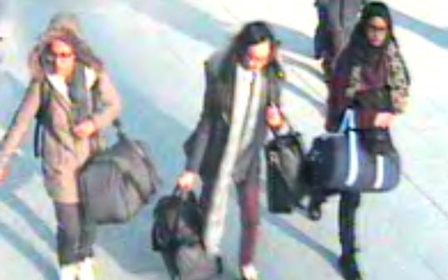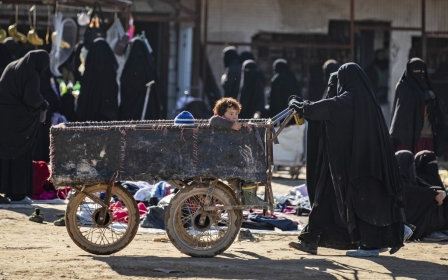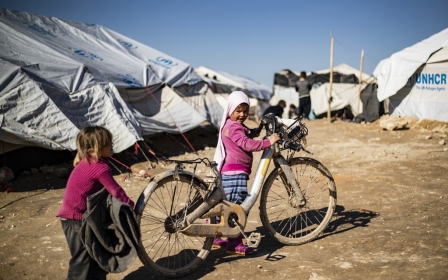Shamima Begum not allowed to return to UK, Supreme Court rules
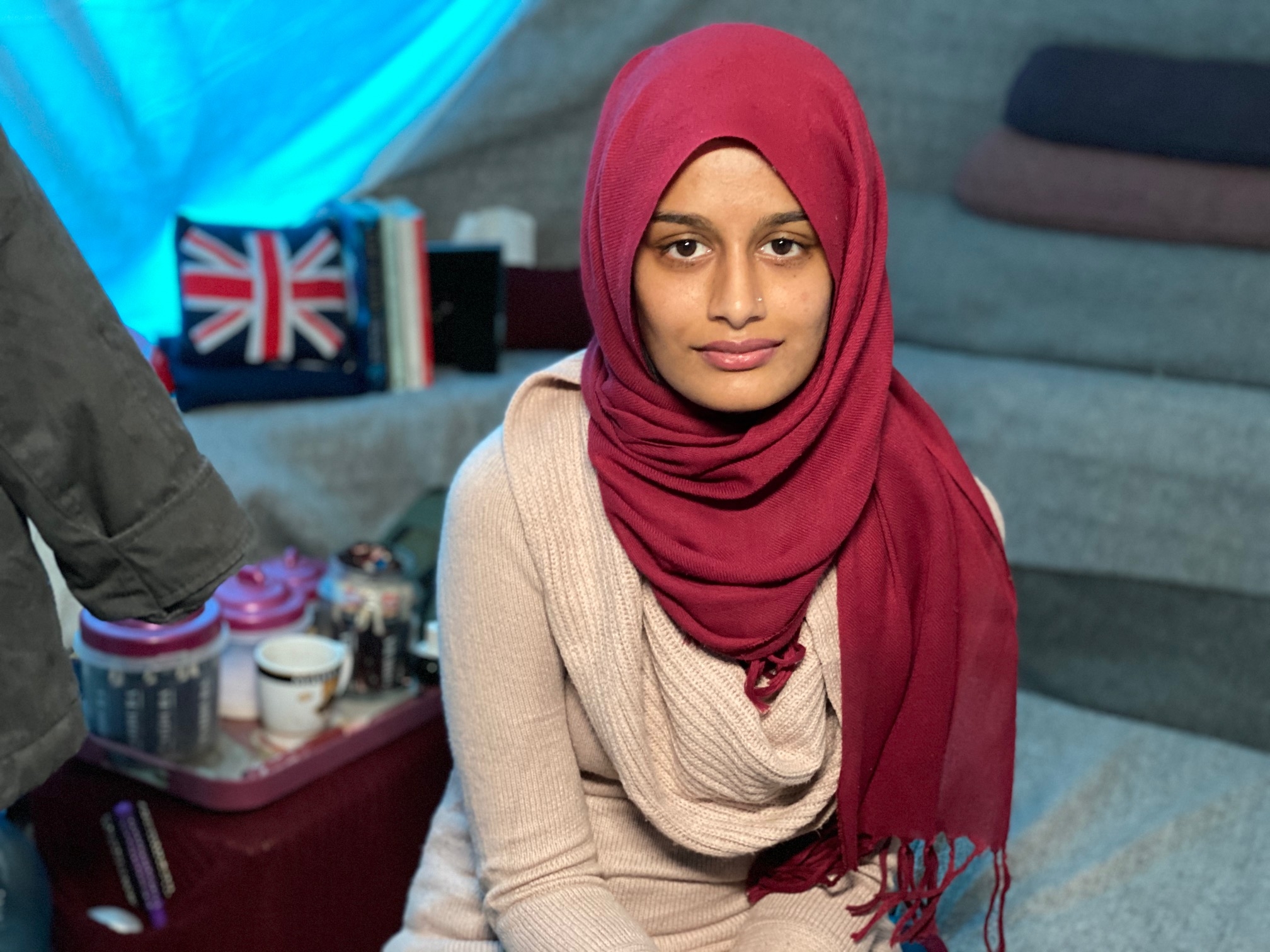
The UK's Supreme Court has ruled that Shamima Begum, a British woman who travelled to join the Islamic State (IS) group in 2015 at the age of 15, will not be allowed to return to the UK to contest the stripping of her citizenship.
Friday's judgment came after the UK government lodged an appeal against a previous ruling, which stipulated that Begum, who is being held in a Kurdish-run camp in northeastern Syria, should be brought back to allow her to mount an appeal against the citizenship deprivation order issued against her by Sajid Javid, the then-home secretary, in 2019.
Supreme Court judges "unanimously" sided with the government and ruled that while Begum could still appeal the decision to take away her citizenship, she could not do so in Britain.
"If a vital public interest - in this case, the safety of the public - makes it impossible for a case to be fairly heard, then the courts cannot ordinarily hear it," the Supreme Court judges concluded.
"The appropriate response to the problem in the present case is for the deprivation appeal to be stayed until Ms Begum is in a position to play an effective part in it without the safety of the public being compromised. That is not a perfect solution, as it is not known how long it may be before that is possible. But there is no perfect solution to a dilemma of the present kind."
New MEE newsletter: Jerusalem Dispatch
Sign up to get the latest insights and analysis on Israel-Palestine, alongside Turkey Unpacked and other MEE newsletters
'National security threat'
The British government has argued against Begum's return, describing her as a "national security threat".
The government stripped the Londoner of her citizenship, citing security grounds, after she was found in a detention camp for suspected IS members and their families in Syria by a journalist from the Times newspaper.
Begum, who was born in the UK to parents who are Bangladeshi nationals, says that she has no other citizenship. Under international law it is illegal to make a citizen stateless; however the UK government argues she qualifies for Bangladeshi citizenship through her parents.
'The right to a fair trial is not something democratic governments should take away on a whim and nor is someone’s British citizenship'
- Rosie Brighouse, Liberty
In July, the Court of Appeal ruled that Begum should be allowed to return to the UK to challenge the decision to take away her British citizenship. It said that Begum would live under controls set by Home Secretary Priti Patel, were she to return.
But the Supreme Court said that the Court of Appeal's ruling that Begum's right to a fair hearing should prevail over requirements of national security was "mistaken".
It said that the court ought to have relied on the home secretary's assessment that she posed a security threat, rather than making its own assessment.
"The Court of Appeal’s approach did not give the Secretary of State’s assessment the respect which it should have received, given that it is the Secretary of State who has been charged by Parliament with responsibility for making such assessments, and who is democratically accountable to Parliament for the discharge of that responsibility," the judgment said.
Like the UK, many western countries have proved reluctant to repatriate men, women and children who travelled to IS territory and have been left stranded in Syria following the militant group's territorial defeat in 2019.
The UK and citizenship-stripping powers
+ Show - HideThe UK has been described by researchers as a “global leader in using citizenship deprivation as a counterterrorism measure”.
Historic citizenship-stripping powers targeted at naturalised citizens on disloyalty grounds had largely fallen into disuse prior to 2002, when the government introduced new measures in an attempt to revoke the citizenship of Abu Hamza, an Egyptian-born cleric subsequently convicted of terrorism in the US.
The 2002 legislation allowed for British-born nationals as well as naturalised citizens to lose their nationality rights. Successive governments gradually broadened the scope of the powers so that home secretaries can now deprive anyone of citizenship if they are satisfied that doing so is “conducive to the public good” and would not leave an individual stateless.
No criminal conviction is required. Letters often state that individuals have been assessed as presenting “a risk to the national security of the United Kingdom”.
The government’s use of the powers surged to unprecedented levels in response to the perceived threat posed by British nationals returning from Syria.
Between 2010 and 2015, 33 people were stripped of their citizenship, according to Home Office figures. In 2016, 14 people were deprived, and in 2017 the number jumped to 104.
In 2018, the figure was 21, and in in 2019 - when Shamima Begum was among those targeted - it was 27. It then dropped to ten in 2020 and eight in 2021.
Some subjects of citizenship-stripping orders argue that they have been left effectively stateless, because the government bases its assessment that they are dual nationals on a right of citizenship to a parent’s country of birth, even if they have never taken up that citizenship or even visited the country.
In some cases the Special Immigration Appeals Commission, which rules on citizenship cases, has agreed: it has ruled in favour of British nationals of Bangladeshi descent on the grounds that Bangladesh does not consider them citizens if they have not claimed Bangladeshi nationality before the age of 21.
Human rights organisations and lawyers have compared the powers to “medieval exile and banishment”. Critics also point out that the powers create a two-tier system in which only those deemed to be dual nationals are at risk of losing their British citizenship; a measure that discriminates against naturalised citizens, immigrants and their children.
Bangladesh has said it will not allow Begum entry and that she has no rights to the country's citizenship. She has never visited Bangladesh. Governments cannot strip the citizenship of nationals who only qualify for one nationality under international law.
Begum's lawyers argued that she could not properly defend herself stranded in detention in Syria, where she could not properly correspond with her legal team.
Friday's judgment was criticised by human rights organisations, with Liberty describing it as a "threat to the rule of law".
'Begum has never had a chance to make her case in court that she doesn't pose a danger to society. Today's decision will prevent her from doing so indefinitely and is unfair'
- Sarah St Vincent, executive director of Rights and Security International
"The right to a fair trial is not something democratic governments should take away on a whim and nor is someone’s British citizenship," said Rosie Brighouse, a lawyer at Liberty.
"If a government is allowed to wield extreme powers like banishment without the basic safeguards of a fair trial it sets an extremely dangerous precedent."
Sarah St Vincent, executive director of Rights and Security International, said Begum was being held in conditions which United Nations experts had said may amount to torture.
"It is deeply disappointing that the Supreme Court criticised the lower court for making judgments about national security - then made its own judgment, in the absence of facts, that Begum's return to the UK would threaten public safety," said St Vincent.
"Begum has never had a chance to make her case in court that she doesn't pose a danger to society. Today's decision will prevent her from doing so indefinitely and is unfair."
A spokesperson for Families for Repatriation International, a network of family members of foreign nationals being held in Syria and family support groups, told Middle East Eye that the judgment showed a "glaring disrespect for the spirit of our laws and for our sense of humanity".
"If the court considers a young woman, who made such a reckless choice at age 15, a threat to the safety of the public, then this is an acute symptom of post-traumatic stress disorder on the part of the decision-making process in our countries," said the spokesperson.
"Those who strip citizenship away from a person, strip themselves of their own humanity by the same token."
Patel, the home secretary, welcomed the judgment which she said had "reaffirmed the home secretary's authority to make vital national security decisions".
“The government will always take the strongest possible action to protect our national security and our priority remains maintaining the safety and security of our citizens,” she said.
From East London to the Islamic State
Begum was one of three schoolgirls from the Bethnal Green Academy in East London who went to join IS, shortly after Sharmeena Begum, who is no relation, travelled to Syria in December 2014.
Shamima Begum, along with two other teenagers, Kadiza Sultana and Amira Abase, boarded a flight from London's Gatwick Airport to Istanbul on 17 February 2015, before travelling to the city of Raqqa in Syria.
She claims to have married a Dutch convert soon after arriving in IS-held territory. In February 2018, she was discovered in a Syrian refugee camp. She was nine months pregnant.
Her newborn baby died soon after she gave birth, while two of her other children also died under IS rule.
Middle East Eye delivers independent and unrivalled coverage and analysis of the Middle East, North Africa and beyond. To learn more about republishing this content and the associated fees, please fill out this form. More about MEE can be found here.


